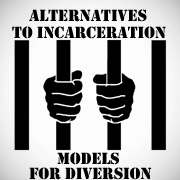Alternatives for Incarceration Symposium Highlights Successful Models for Diversion
 Wednesday at the First United Methodist Church at the Chicago Temple, community members, advocates, and elected officials congregated to hear about alternatives to what has become the de facto solution to our nation’s drug problem–mass incarceration. Protestants for the Common good hosted speakers from Washington, Wisconsin, and downstate Illinois talked about pathbreaking efforts to move from a punitive justice system to a restorative one.
Wednesday at the First United Methodist Church at the Chicago Temple, community members, advocates, and elected officials congregated to hear about alternatives to what has become the de facto solution to our nation’s drug problem–mass incarceration. Protestants for the Common good hosted speakers from Washington, Wisconsin, and downstate Illinois talked about pathbreaking efforts to move from a punitive justice system to a restorative one.
- Representatives from Seattle discussed Law Enforcement Assisted Diversion (LEAD), which enables police officers to refer arrestees directly to treatment centers. This cuts down on case processing costs and reduces unhelpful (and potentially harmful) contacts with the justice system for residents suffering from mental illness and substance abuse problems.
- Saying “Safety and accountability don’t correspond with the number of people you prosecute or jail,” Milwaukee County, WI District Attorney John Chisolm described four components of his restorative justice approach: 1) Crisis Intervention Training, based upon Chicago’s lauded program, 2) Universal and validated screening of every single arrestee, 3) Flexible probation terms tailored to defendant needs, and 4) Reinvestment of cost savings in restorative programming.
- Finally, representatives Macon County Illinois discussed how their Adult Redeploy Illinois–aimed at providing treatment and education alternatives to incarceration–in a county that sends more people to prison than any other in Illinois.
“Recognizing that diversion is not only fair but also economical, Cook County Commissioners Earlene Collins and Larry Suffredin sponsored an ordinance creating the “Jail Diversion Program,” which the Board passed in March, 2010. The ordinance orders a diversion “Advisory Panel” to establish “a collaborative relationship between the State, the County, local municipalities and local community based mental health and substance abuse disorder service providers with emphasis on mutual goals, shared responsibilities and benefits.” With representatives from public safety agencies, mental health providers, and researchers, the panel would be similar to successful groups guiding crime strategy for many major American cities. But to date, the panel has not been convened.”

